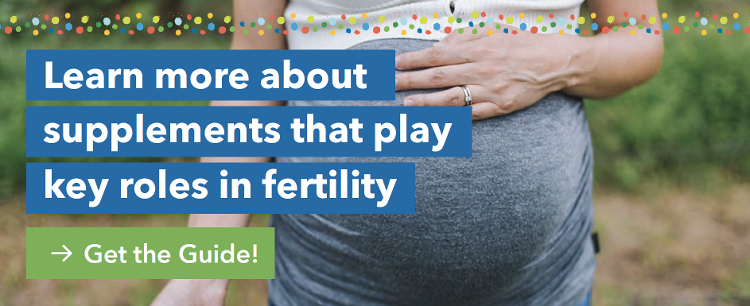The American College of Obstetrics and Gynecology (ACOG) recognizes that a woman’s pregnancy and postpartum period play a major role in long-term health, both for mom and baby.
But in modern-day society, it’s become the norm for postpartum moms to jump right back into normal daily routines, exercise, and work. Far less emphasis is put on social support networks, breastfeeding support, nutrition, self-care, and the reality of postpartum mood challenges – or “baby blues” – which is experienced to some degree by 70% of women.1
And while most mothers are diligent about pediatric visits for their new baby, many aren’t seeking out or being offered continuous postpartum care for themselves.
Studies show that a large percentage of new moms struggle with low mood, nipple soreness, breastfeeding difficulties, perineal discomfort, hemorrhoids, bowel issues, headaches, bladder problems, weakened immune system, sexual issues, and more. A holistic approach that integrates Eastern and Western philosophies to postpartum care can provide women with a comprehensive and effective plan for all phases of postpartum recovery.
The following factors have been prominent in Eastern medicine traditions and overlap in many ways with Western postpartum practices.
Social Support
The importance of social support in the postpartum period is well-studied, but Western societies tend to overlook this.2 Western medicine lacks the fundamental understanding that women need support from not only a partner, but from a tribe of other women as well.
Historically, this looked like many women living together in a village. Nowadays, it might take the form of close friends, religious or spiritual communities, neighbors, or female family members. In whatever form this support comes from, women during postpartum recovery thrive on social support. While a partner can play a key role, they often are incapable of providing all of the support a new mother needs.

Continuation of Care
Statistics show that almost 40% of women are not getting postpartum care.3 This number differs dramatically from Ayurvedic and traditional Chinese medicine traditions, where it’s a culturally-accepted practice for postpartum care to focus on both mothers and babies, instead of just on babies.
The ACOG highlights that the key to a healthy pregnancy and postpartum period is ongoing care with a team of professionals who can provide services specifically tailored to each woman’s needs. This postpartum plan is best designed during pregnancy, so that the mother knows who will be available for support and when.
Pregnant mothers should have contact with a medical provider within three weeks of birth, and timing should be individualized according to each mother’s circumstances and needs. The ACOG also shares that these postpartum visits are of particular importance for women who had high-risk pregnancies. These situations can potentially increase the mother’s risk for developing health complications in the future, especially without continuous medical care.
Eastern approaches like Ayurveda and traditional Chinese medicine focus a great deal on the first six weeks of the postpartum period, also referred to as phase one. This phase requires the greatest deal of care and support. Phase two – from six to twelve weeks postpartum – calls for ongoing support for balanced hormones, successful breastfeeding, and establishing a healthy mom-child connection. Phase three refers to weeks twelve to six months, when women begin to reengage more fully with society, with a greater focus on nutrition and self-care practices.
Nutrition, Teas, and Herbs
In Eastern medicinal practices, nutrition has always been a primary focus of postpartum recovery. While Ayurveda and Chinese medicine differ in certain regards, the overarching theme is replenishment, hydration, and restoring vitality through nutrition.
Both systems recommend organ meats for their iron content and other superior nutritional benefits. Chinese medicine also recommends a lot of fat and soft foods – such as soups, bone broths, and gelatin – and goji berries, which are widely used for their antioxidant content and ability to replenish new mothers.*
Ayurvedic herbs that have been commonly used in the postpartum period include chasteberry, Ashwagandha, fennel, and fenugreek. Chasteberry, or vitex, is believed to replenish all reproductive tissues and organs that were depleted in childbirth.* Ashwagandha was commonly used for energy and adrenal support, while fennel and fenugreek were provided for lactation and breast milk production.*
Spacing Out Births
The idea of leaving a certain amount of space between births is discussed in Eastern traditions, and the benefits are also seen in modern medical practices. In more recent times, women tend to begin having children later in life and sometimes feel a rush to have children closer together.
Unfortunately, these back-to-back pregnancies can potentially lead to health issues for both mother and child. The general recommendation is to leave at least two years between birth and pregnancy for a woman’s body to properly recover.
.jpg?width=750&name=happy-pregnant-woman_t20_px777W%20(2).jpg)
East-West Approach
When Eastern and Western medicinal approaches are combined, expecting mothers can create a comprehensive and integrative postpartum recovery plan to ensure vaginal health, balanced moods, and proper social support and nutrition.
While Western culture has many new moms feeling rushed to get back to normal life, Ayurveda prescribes a 42-day rest and recovery period. During this time, a team of women cares for the mother, and another team of female support cares for the baby. Chinese tradition enforces “sitting-a-month,” which is similarly intended for the new mother to do nothing except rest, breastfeed, and replenish her body with good nutrition and hydration.
To form an effective and comprehensive postpartum care plan that integrates Eastern and Western approaches, the following five factors should be considered:
1. Support
Every new mother should have her tribe of women, whether that be friends, family, neighbors, religious or spiritual groups, or some other form of female support. The support of these women should be lined up before birth.
2. Provider Team
Along with a medical doctor, a woman’s provider team for her continuous care might include a doula, nutritionist, massage therapist, acupuncturist, or other practitioners to meet her unique needs.
3. Nutrition
A focus on replenishing, hydrating, and rebuilding is essential in the postpartum period. If possible, check for levels of vitamins D, B, and iron, as these can easily be depleted. Vitamin and iron levels can make a big difference in how a new mom will feel and adapt after birth.*
4. Supplement Plan
It’s always important to work with a provider to develop a safe and personalized supplement plan, but options that can be helpful for many new mothers include:
- Methylated B vitamins for energy and mood*
- Chasteberry for reproductive tissue restoration*
- Ashwagandha for energy and stress support*
- Fennel and fenugreek for lactation and milk production*
5. Self-Care
Self-care is not to be overlooked, and it can include massages, hot baths, plenty of rest, and anything else that helps a new mom relax and de-stress. Self-care should be prominent throughout all phases of postpartum recovery.
By using a holistic approach to postpartum care and combining Eastern and Western medicinal techniques, expecting mothers can experience mental, emotional, and spiritual health improvements – for themselves and their babies. By creating this solid, recovery-focused foundation, mothers can ensure a healthy, life-long mom-child connection from the moment of conception.
By Dr. Taz

*These statements have not been evaluated by the Food and Drug Administration. This product is not intended to diagnose, treat, cure, or prevent any disease.
1 Parekh, R. (2017). What Is Postpartum Depression? Retrieved from https://www.psychiatry.org/patients-families/postpartum-depression/what-is-postpartum-depression.
2 Negron, R., Martin, A., Almog, M., Balbierz, A., & Howell, E.A. (2013). Social support during the postpartum period: Mothers’ views on needs, expectations, and mobilization of support. Maternal and Child Health Journal, 17(4), 616-623. Retrieved from https://www.ncbi.nlm.nih.gov/pmc/articles/PMC3518627/.
3 Optimizing postpartum care. ACOG Committee Opinion. (2018). The American College of Obstetricians and Gynecologists, 131(5), e140-50. Retrieved from https://www.acog.org/Clinical-Guidance-and-Publications/Committee-Opinions/Committee-on-Obstetric-Practice/Optimizing-Postpartum-Care.








.jpg?width=750&name=happy-pregnant-woman_t20_px777W%20(2).jpg)


.jpg)
.jpg)
.jpg)




